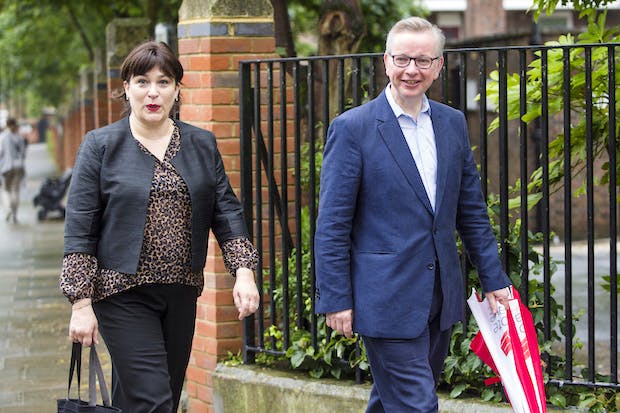The first job of a columnist on a big newspaper is to be noticed. If people aren’t talking about the things you’ve said, what’s the point? By that measure, Sarah Vine is a good columnist. Her name is known. At the Daily Mail she says things that people notice and talk about. She does it on Twitter too. Over the weekend, she had this to say about the anti-Brexit march through London:
“There are no leavers there because they would be lynched. These people are so convinced of their righteousness they cannot see anyone who disagrees with them as anything other than a monster. The rhetoric against people who voted to Leave characterises them as sub-human.”
That is a mixture of fair comment and daft hyperbole. There weren’t any Leavers there because it was an event backing a cause they disagree with; Tories don’t go to Labour conferences, and vegetarians don’t go to butchers’ shops. If Leavers had attended, there’d have been some tutting and perhaps squabbling. But no lynching; for all the awfulness in the Brexit debate, this is still Britain. We’re going through a rough patch, but we still don’t do that.
As for “sub-human”, “monster” and the rest, well, she’s got a tiny wee bit of a point, even if she goes way over the top to make it. I voted Remain so I have no axe to grind when I say that some Remainers have often failed to respect and understand the motives of Leavers. Some Remainers have trafficked in stupid and insulting caricatures. You don’t have to search #FBPE for long to find people suggesting the Leave vote was driven by bigotry or stupidity or both. (Similar sins are found on the Leave side too, of course; the five million people who signed that petition are just ordinary people, not sneering Islington metro-liberals.)
But I’m not writing this to analyse Sarah Vine’s tweets; life is rather too short for that. What interests me is the responses to that tweet. In a sign of how well she does her job, Vine’s tweet caused great excitement. Several online responses to her racked up the numbers on Twitter as thousands of users shared and liked them. My former Daily Telegraph colleague Tim Walker, now at the New European, tops the table. “Please retweet if you think @DailyMailUK should sack Michael Gove’s wife for this incendiary and irresponsible tweet” he wrote. 14,000 people obliged.
Then there was Gavin Esler, once a very good BBC correspondent, who now tweets about Brexit with compelling despair. He got nearly 15,000 likes for this:
“Woman who writes for The Mail characterises a million or more peacefully protesting fellow citizens as a lynch mob. She is also married to Michael Gove. These are not the kind of people who make me proud of our country. Bitter and twisted.”
And “Otto English”, an account popular among FBPE types, wracked up 4,000 likes for:
“Michael Gove’s wife suggesting that a million voters are potential murderers. That’s a new low.”
Molly Scott Cato, a Green MEP, joined in with “I can’t be alone in feeling disturbed that this woman’s husband is being proposed as our next PM” which was liked 6,000 times.
Notice anything about those tweets? That’s right: the implication that the fact Vine is married to someone has some relevance to her opinions. Apparently a woman expressing opinions must somehow actually be reflecting her husband’s views. Never mind the name she has made for herself as a journalist, none of the originators of those tweets even bother giving Sarah Vine her own name: she is simply “Michael Gove’s wife”.
Of course, some of this may reflect the overwhelming dislike some people feel for Gove; such people — including some of his colleagues — will attribute any supposed evil to him, whoever its real author may be. But it’s hard not to conclude that there is also a good measure of old-fashioned sexism in the mix here. How else to explain references to the spouse of a woman when talking about how that woman does her job?
Because she is prominent in her own right, and not short of trenchant opinions of her own, Vine gets a lot of this. Sometimes she’s Lady Macbeth, controlling her husband and directing his deeds. Sometimes she’s a cipher for him and his politics. The concept of two adults being married while independently having their own views of the world that may or may not align does not enter into such narratives, because some people seem to struggle with the idea of a woman having strong views.
I don’t know Vine; I’ve only ever met her in passing. But I feel confident in saying that’s she’s a grown women and perfectly capable of having opinions – provocative, daft or otherwise — all by herself and without reference to her husband.
In the end, the Remainer backlash against “Michael Gove’s wife” tells us two things. First, this is once again proof that women are treated differently in political conversation, and not in a good way. And second, not all prominent Remain voices deserve that caricature of being right-on super-liberals, because when a woman says things they don’t like, they’re as capable of stupid sexism as anyone else.







Comments